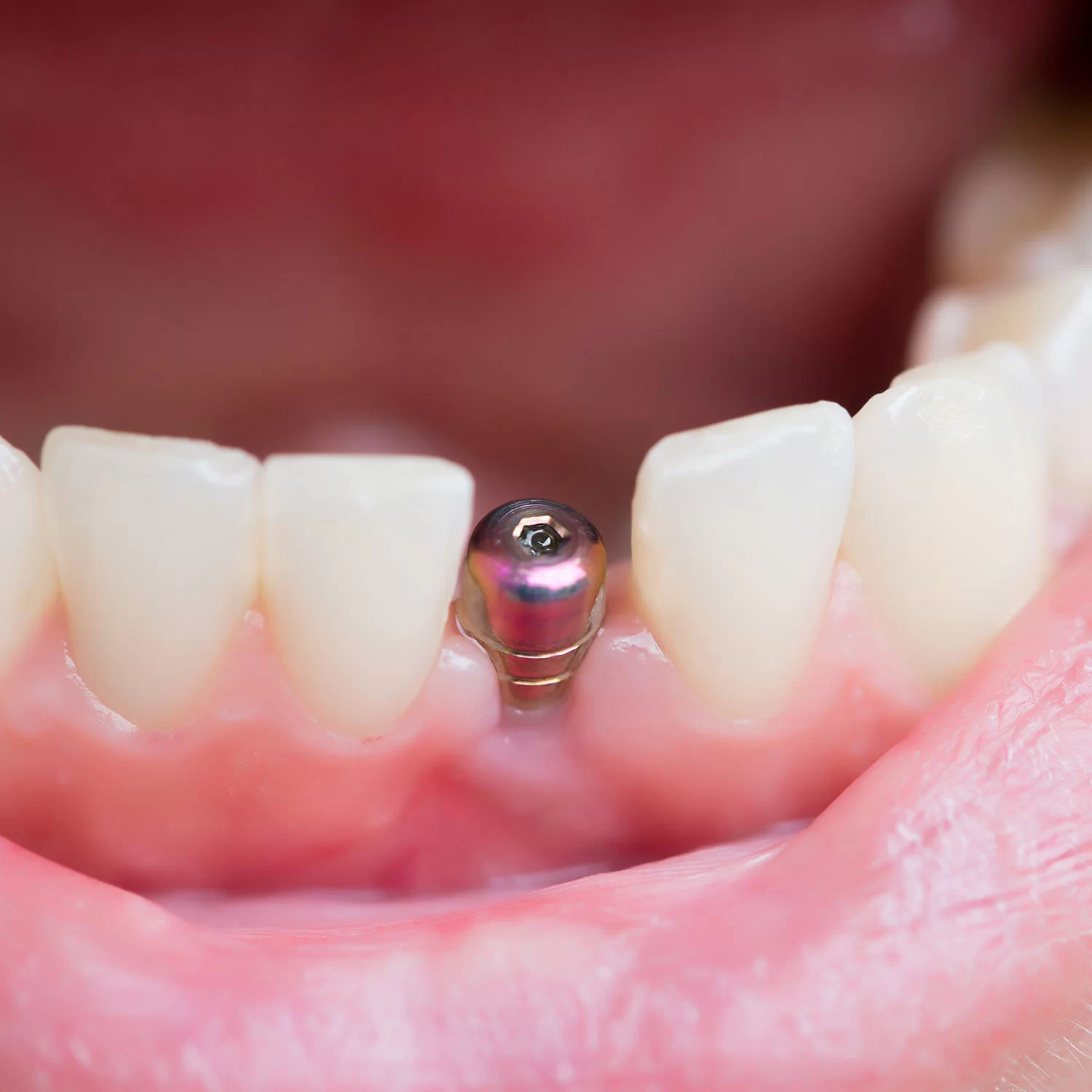
How Long Do Dental Implants Take to Heal? A Complete Guide to the Healing Process
- 1. Understanding Dental Implants
- 2. How Long Do Dental Implants Take to Heal?
- 3. The Stages of Healing After Dental Implant Surgery
- 4. Factors That Affect Healing Time
- 5. Aftercare Tips for a Smooth Healing Process
- 6. When to See Your Dentist During the Healing Process
1. Understanding Dental Implants
Dental implants are a popular solution for replacing missing teeth. They are titanium posts that are surgically placed into your jawbone, serving as anchors for artificial teeth. The process involves a few key steps, including placement of the implant, healing of the surrounding bone, and the attachment of the replacement tooth. While dental implants offer long-term durability and a natural appearance, many patients are curious about the healing time involved. So, how long do dental implants take to heal?
In this article, we will explore the dental implant healing process, recovery stages, and important aftercare tips to ensure a successful result.
2. How Long Do Dental Implants Take to Heal?
The healing time for dental implants varies depending on several factors, such as your overall health, the quality of your bone, and the complexity of the procedure. Typically, the process takes anywhere from 3 to 6 months, but full recovery can take longer.
Initially, the implant will need to fuse with your jawbone in a process called osseointegration. This is the key to ensuring the implant remains stable and functional for years to come. During this phase, which lasts around 3 to 6 months, the bone grows around the titanium post, forming a secure bond.
However, some patients may experience faster or slower healing depending on the individual circumstances. For instance, if additional procedures like bone grafts are required, healing may take longer.
3. The Stages of Healing After Dental Implant Surgery
The healing process after dental implant surgery can be divided into several stages:
- Immediate Post-Surgery (0–2 Weeks): In this phase, you'll experience some swelling, discomfort, and possibly bruising. Your dentist may recommend pain medications and antibiotics to help manage pain and prevent infection.
- Initial Healing and Osseointegration (3–6 Months): This is the most crucial stage where the implant fuses with your jawbone. During this period, you’ll need to avoid putting pressure on the implant site. Some patients may be given a temporary crown while they wait for the healing process to finish.
- Final Restoration (6 Months+): Once osseointegration is complete, your dentist will attach a permanent crown or bridge to the implant. This completes the process, and you can enjoy a fully restored smile.
4. Factors That Affect Healing Time
While the average healing time for dental implants is around 3 to 6 months, several factors can influence how long the healing process takes. These include:
- Age: Younger individuals may heal faster due to higher bone density and better overall health.
- Bone Quality: The quality and quantity of the bone in your jaw play a significant role. If your jawbone is not sufficient, bone grafting may be required, which can extend the healing process.
- Oral Hygiene: Maintaining proper oral hygiene is essential during the healing process. Infections can slow healing and even lead to implant failure.
- Health Conditions: Chronic conditions such as diabetes or autoimmune diseases may slow the healing process.
- Smoking: Smoking can significantly delay healing and increase the risk of implant failure due to reduced blood flow to the gums.
5. Aftercare Tips for a Smooth Healing Process
Proper aftercare is essential for ensuring that your dental implants heal correctly. Here are some tips to help promote a smooth and effective healing process:
- Follow Your Dentist's Instructions: Always adhere to the aftercare instructions provided by your dentist. This includes taking prescribed medications, using recommended mouthwashes, and avoiding certain foods.
- Maintain Good Oral Hygiene: Brush gently around the implant area and floss daily to keep the site clean. Avoid aggressive brushing, as this could irritate the gums and delay healing.
- Avoid Hard Foods: During the healing phase, avoid chewing on hard foods or anything that could put pressure on the implant site.
- Attend Follow-Up Appointments: Regular check-ups are essential to monitor the healing process and address any issues early on.
6. When to See Your Dentist During the Healing Process
While the healing process for dental implants is generally straightforward, there are certain signs that you should look out for. If you experience any of the following symptoms, contact your dentist immediately:
- Excessive Pain: Some discomfort is normal, but severe or persistent pain could indicate an infection or complications.
- Swelling or Redness: If the swelling does not subside after a few days or if redness appears around the implant, it may be a sign of infection.
- Loose Implant: If the implant feels loose or shifts, it could indicate that osseointegration is not occurring as expected, and your dentist may need to intervene.
Regular follow-ups with your dentist will help ensure that your implant is healing properly and that any potential issues are addressed early.
For more information on dental implants or to schedule a consultation, visit Dentistry Toothtruth.







 603 Dental4.0 (18 review)
603 Dental4.0 (18 review) Holistic Dental Wellness Center - Iman Abdeshahian, DMD4.0 (166 review)
Holistic Dental Wellness Center - Iman Abdeshahian, DMD4.0 (166 review) Hudec Dental4.0 (455 review)
Hudec Dental4.0 (455 review) Metro Dentalcare Specialty Center Maple Grove - Periodontics4.0 (115 review)
Metro Dentalcare Specialty Center Maple Grove - Periodontics4.0 (115 review) Capitol Dental Center PLC5.0 (94 review)
Capitol Dental Center PLC5.0 (94 review) Smile Spa of Parlin4.0 (89 review)
Smile Spa of Parlin4.0 (89 review) The Importance of Oral Health Education During Pregnancy for a Healthy Pregnancy
The Importance of Oral Health Education During Pregnancy for a Healthy Pregnancy Best Tips for Brushing Your Teeth Properly for Healthy Gums: Essential Techniques for Oral Health
Best Tips for Brushing Your Teeth Properly for Healthy Gums: Essential Techniques for Oral Health Why Skipping Dental Checkups Can Lead to Bigger Oral Health Problems
Why Skipping Dental Checkups Can Lead to Bigger Oral Health Problems Advantages of Porcelain Dental Restorations
Advantages of Porcelain Dental Restorations How Can Diabetes Cause Tooth and Gum Problems? Preventing and Managing Oral Health Issues
How Can Diabetes Cause Tooth and Gum Problems? Preventing and Managing Oral Health Issues Healthy Habits for Promoting Good Oral Health and Hygiene: Tips for a Healthy Smile
Healthy Habits for Promoting Good Oral Health and Hygiene: Tips for a Healthy Smile